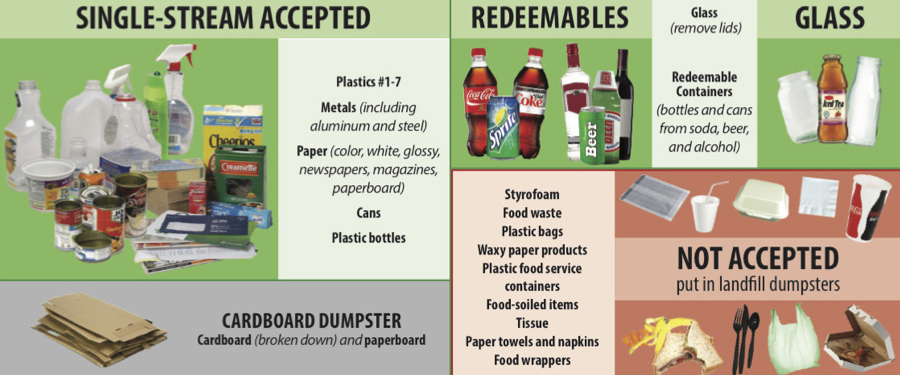At Wartburg College we want to help the community find ways to better steward its resources. Check out the menu below for recycling tips, and everyday practices to help the environment.
At Wartburg College we want to help the community find ways to better steward its resources. Check out the menu below for recycling tips, and everyday practices to help the environment.
Sustainability Quick Facts
Wartburg College hired Schneider Electric, an energy consulting firm, to implement a $2.4 million energy efficiency project through utility improvements. One-third of the estimated cost of the project was funded by a grant from the state Office of Energy Independence through a U.S. Department of Energy program. Overall, the project is projected to save $270,000 annually in utility costs.
Water improvements
Gas efficiency
An estimated170,000 therms or 17,000 MMBTU’s are anticipated to be saved from these improvements.
Electrical efficiency
These improvements are estimated to save 1,600,000 kWh of electricity and 1,900 kW of power.

To help you reduce your contribution to the landfill, we have provided easily accessible recycling stations next to each residence hall and in every academic building. The college partners with the City of Waverly to recycle the following items. We hope that you take the time to find one of the multiple recycling stations close to you. Your impact is bigger than you realize.
Where to Recycle
Academic & Business Buildings: You will find recycling stations on nearly every floor in each building across campus.
Residence Halls: There are recycling stations accessible to every residence hall on Wartburg’s campus.In Grossmann and Löhe, the recycling stations are on each floor. In The Residence, they are outside the lounge. In all other halls they are located outside near the dumpsters.
Single Stream
These items go into the big blue bins that are provided by the city and is collected by the city.
Items Accepted in Single Stream:
Items Not Accepted in Single Stream:
Waste Reduction
Looking for small changes to make a big difference?
Here are a few every day ways to lessen your carbon footprint:
Recycling in Dining
A portion of to-go containers from Wartburg Dining can be recycled, IF they are clean, not soiled with grease or wet food.
Single-Stream Recycling in Retail Dining Areas:
Electronic Waste (E-Waste) Recycling
As part of the recycling program, Wartburg offers the collection of electronic materials.
Examples of E-Waste:
REUSE(D) Store
REUSE(D) items are available outside the Student Life Office. The items are free to students, faculty, and staff.
Give: Unwanted, gently used office supplies from your office/room.
Receive: Before buying new, stop by Student Life to see if the item you are looking for has been donated. Take supplies that you need free of charge! If you find you don’t need them, simply return them.
Here is what we regularly shelve: